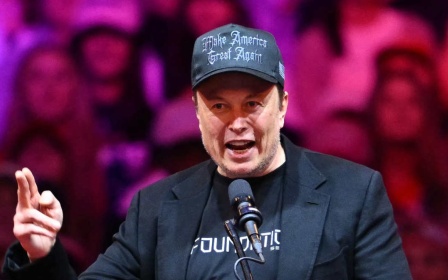Iranian press review: Conservative outlets hail Hezbollah as 'victorious'

Conservative outlets say Hezbollah victorious
Iranian media have widely welcomed the ceasefire in Lebanon, though coverage has been split.
Moderate outlets have focused on the destruction and loss of life caused by the war, while conservative media have portrayed the ceasefire as a victory for Hezbollah against Israel.
New MEE newsletter: Jerusalem Dispatch
Sign up to get the latest insights and analysis on Israel-Palestine, alongside Turkey Unpacked and other MEE newsletters
The conservative Kayhan daily, whose editor-in-chief is appointed by Iran’s Supreme Leader, described the ceasefire as a defeat for Israel.
On Thursday, in its main article, the daily wrote, “this ceasefire is imposed on the Zionists,” and said, “the Zionists are mourning this ceasefire,” while also reporting on “the joy of the Lebanese".
The daily’s editorial expanded on this view, publishing an article titled, “This ceasefire is the beginning, not the end.”
Another conservative outlet, Javan, which is funded by the Islamic Revolutionary Guard Corps (IRGC), also celebrated the ceasefire as a defeat for Israel.
The daily quoted IRGC commander Hossein Salami, who said: “The ceasefire is a strategic and humiliating defeat for the Zionist regime, which failed to achieve any of its sinister goals or aspirations in its war against Hezbollah.”
Power outages spark criticism
Widespread power outages in Tehran and other parts of Iran have drawn sharp criticism about the country’s energy management. Despite being rich in oil and gas resources, Iran has struggled to meet its energy demands, while experts have proposed various solutions to address the recurring problem.
For over a decade, electricity shortages have become an annual issue during summer and winter, when energy consumption peaks.
Energy expert Kaveh Khalili, told the Arman Melli daily: “The intensification of energy imbalance in recent years is due to the increase in domestic consumption and the lack of adequate development of energy production infrastructure.”
He also highlighted the aging and deteriorating energy infrastructure as a significant issue, noting that international sanctions have deprived Iran of access to the technologies and equipment required for developing modern power plants.
Khalili proposed that Iran should consider energy trade agreements with neighbouring countries.
This expert also called for greater private sector involvement, saying: “By encouraging private sector investment in the electricity sector, the government can develop technologies, acquire expertise, and attract new capital.
"This must include participation from domestic and foreign investors, privatisation of state-owned companies, and tax incentives.”
VPN 'mafia' prevents internet unblocking
Internet restrictions in Iran bring an annual income of about $875m to the firms selling virtual private networks (VPNs) that enable citizens to evade restricions. For this reason, this powerful group is seen as one of the main obstacles to lifting the restrictions.
On Wednesday, the Sazandegi daily reported that the VPN "mafia" publicly criticises internet censorship while opposing its removal.
Iran is one of the most restrictive countries in the world when it comes to internet access. Intelligence institutions and the IRGC have blocked many news websites, social media platforms, and messaging apps.
According to reports, the main players in VPN sales are linked to these same intelligence institutions and the IRGC.
Sazandegi, a pro-government daily, named this as the main reason for President Massoud Pezeshkian’s failure to lift the internet restrictions - a promise he made during his election campaign.
Sazandegi added that some managers of Iranian-made social networks also oppose removing the internet censorship. These networks, which received billions in funding in recent years, have failed to attract users and compete with global platforms.
Israel 'sets trap for Iran': Aragchi
Iranian Foreign Minister Abbas Araghchi described Israel's direct attack on the Iranian consulate in Damascus and the assassination of Ismail Haniyeh in Tehran as a trap.
Although similar analyses had been previously proposed by experts and members of parliament, this is the first time an official as senior as Araghchi has stressed the need for Iran to avoid escalating direct conflict with Israel.
'Israel has set traps for Iran, seeks war across the region, and aims to involve the United States in the conflict'
- Abbas Araghchi
During a ceremony attended by commanders of the IRGC, Araghchi said: "Israel has set traps for Iran, seeks war across the region, and aims to involve the United States in the conflict."
The significance of these remarks grows as the risk of military conflict between Iran, Israel, and its western allies increases, particularly as Donald Trump assumes office in the White House.
However, responding to a question from one of the IRGC commanders present, Araghchi asserted: "We have made it clear that we will respond decisively. This will be carried out within the establishment’s decision-making framework."
He further added: "Avoiding war requires demonstrating strength. If there is even the slightest sign of fear, it invites war. To truly avoid conflict, one must firmly declare readiness and make it clear that any aggression will be met with strength. This is what deters war."
Middle East Eye delivers independent and unrivalled coverage and analysis of the Middle East, North Africa and beyond. To learn more about republishing this content and the associated fees, please fill out this form. More about MEE can be found here.





